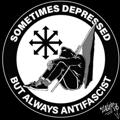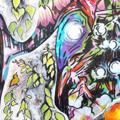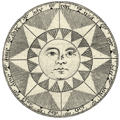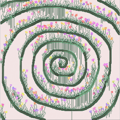eneroenlaciudad@re.colectora.cc reviewed Los desposeídos by Ursula K. Le Guin (Biblioteca Ursula K. Le Guin)
Comentario recién terminada la lectura de Los desposeídos
5 stars
Si bien leí la mayor parte de la novela en Nono, en enero durante el verano, la terminé acá en casa, con mi gato Carbón de compañía, mimoso, cercano después de habernos extrañado muchos días. 📚🌱✨ Algún día haré la reseña, este es más bien un comentario que sale del momento recién terminado del libro, donde la expansión de todo lo que sentí y viví me rodea como una neblina o un refulgor, o capaz como la capa de polvo de Anarres. Es mucho, es intenso, es un poco abrumador. Me gusta escribir reseñas cuando ha pasado un tiempo, capaz hasta olvido algún detalle o personaje pero algo ha sedimentado y eso es justo lo que quiero contar. Confío en eso que queda como semilla para la reseña. Por ahora solo un punteo: La ingenuidad de Shevek como mirada de mundo, una ingenuidad que me permitió identificarme fuerte con su …
Si bien leí la mayor parte de la novela en Nono, en enero durante el verano, la terminé acá en casa, con mi gato Carbón de compañía, mimoso, cercano después de habernos extrañado muchos días. 📚🌱✨ Algún día haré la reseña, este es más bien un comentario que sale del momento recién terminado del libro, donde la expansión de todo lo que sentí y viví me rodea como una neblina o un refulgor, o capaz como la capa de polvo de Anarres. Es mucho, es intenso, es un poco abrumador. Me gusta escribir reseñas cuando ha pasado un tiempo, capaz hasta olvido algún detalle o personaje pero algo ha sedimentado y eso es justo lo que quiero contar. Confío en eso que queda como semilla para la reseña. Por ahora solo un punteo: La ingenuidad de Shevek como mirada de mundo, una ingenuidad que me permitió identificarme fuerte con su confianza en la humanidad a pesar de todo. El amor de Takver como un vínculo elegido para una promesa de vida. La lealtad primero y siempre. Defender la identidad colectiva aún a pesar del colectivo. La preciosa manera espiralada de contar la historia en dos temporalidades/espacialidades. Los abrigos de Urras llenos de bolsillos y una libreta con el punteo de una teoría que cambiaría la humanidad en el universo. Y el deseo de querer regalar ese conocimiento. Descubrir que, al haber leído La mano izquierda de la oscuridad primero, fue mi propio viaje en el tiempo saber algunas cosas antes que el propio protagonista. La emoción que me embargó cada vez que leí las ideas de que el viaje es el retorno (y aún no estoy segura de saber por qué me emociona o si me emociona por todo lo que puedo sumar a esas palabras).









